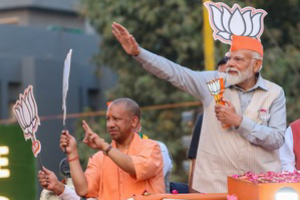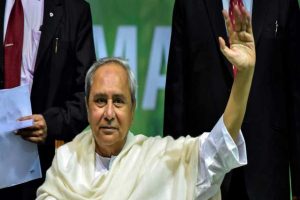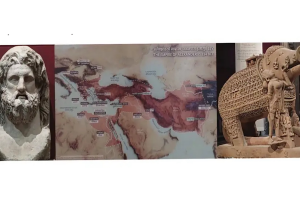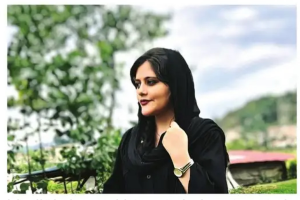The Shanghai Cooperation Organisation (SCO) is a Eurasian political, economic, and security organisation, the creation of which was announced on 15 June 2001 in Shanghai, China by the Shanghai group comprising China, Kazakhstan, Kyrgyzstan, Russia and Tajikistan. The SCO Charter was signed in June 2002 and came into force on 19 September 2003. These countries, except for Uzbekistan, had been members of the Shanghai Five group, founded on 26 April 1996.
At the Dushanbe, Tajikistan, summit in 2000, members agreed to “oppose intervention in other countries’ internal affairs on the pretexts of ‘humanitarianism’ and ‘protecting human rights’ and support the efforts of one another in safeguarding the five countries’ national independence, sovereignty, territorial integrity, and social stability.” At the Ufa meeting of SCO, Russia decided to admit India and Pakistan as full members. Both signed the memorandum of obligations in June 2016 in Tashkent, Uzbekistan, thereby initiating the formal process of joining the SCO as full members. On 9 June 2017, at a summit in Astana, Kazakhstan, India and Pakistan officially joined SCO as full-fledged members.
In 2017, SCO’s eight full members accounted for approximately half of the world’s population, a quarter of the world’s GDP, and about 80 per cent of Eurasia’s landmass.
The Council of Heads of State is the top decision-making body in the SCO. This council meets at SCO summits, which are held each year in one of the member states’ capital cities. The Council of Foreign Ministers also holds regular meetings, where they discuss the current international situation and the SCOs interaction with other international organisations. The Secretariat of the SCO located in Beijing is the primary executive body of the organisation. It serves to implement organisational decisions and decrees, drafts proposed documents (such as declarations and agendas), functions as a document depository for the organisation, and arranges specific activities within the SCO framework.
The Regional Anti-Terrorist Structure (RATS), headquartered in Tashkent, Uzbekistan, is a permanent organ of the SCO, which serves to promote cooperation of member-states against the three evils of terrorism, separatism and extremism. The head of RATS is elected for a three-year term. Each member-state also sends a permanent representative to RATS. Over the past few years, the organisation’s activities have expanded to include military cooperation, intelligence sharing, and counterterrorism.
There have been a number of SCO joint military exercises. The first of these was held in 2003, with the first phase taking place in Kazakhstan and the second in China. Since then China and Russia have teamed up for large-scale war games in 2005 (Peace Mission 2005), 2007 and 2009, under the auspices of the SCO. More than 4,000 soldiers participated at the joint military exercises in 2007 (known as “Peace Mission 2007”) which took place in Chelyabinsk Russia near the Ural Mountains, as was agreed upon in April 2006 at a meeting of SCO Defence Ministers. Peace Mission 2010, conducted during 9-25 September at Kazakhstan’s Matybulak training area, saw over 5,000 personnel from China, Russia, Kazakhstan, Kyrgyzstan and Tajikistan conduct joint planning and operational manoeuvers.
Russia, Kazakhstan and Kyrgyzstan are also members of the Eurasian Economic Union to enhance economic cooperation. It was signed by the SCO member-states on 23 September 2003. A follow-up plan with 100 specific actions was signed one year later, on 23 September 2004. On 26 October 2005, during the Moscow Summit the SCO prioritised joint energy projects ~ the oil and gas sector, the exploration of new hydrocarbon reserves, and joint use of water resources. The creation of an Inter-bank SCO Council was also agreed upon at that summit in order to fund future joint projects and the first meeting was held in Beijing on 21-22 February 2006.
The Russian President, Vladimir Putin, said: “We now clearly see the defectiveness of the monopoly in world finance and the policy of economic selfishness. To solve the current problem Russia will take part in changing the global financial structure so that it will be able to guarantee stability and prosperity in the world and to ensure progress.”
On 16 June 2009, at the Yekaterinburg Summit, China announced plans to provide a $10 billion loan to SCO member-states to shore up the struggling economies of its members amid the global financial crisis.
Cultural cooperation is a striking feature of the SCO framework. Culture ministers of the SCO met for the first time in Beijing on 12 April 2002, signing a joint statement for continued cooperation. The third meeting of the Culture Ministers took place in Tashkent, Uzbekistan, on 27-28 April 2006. An SCO Arts Festival and Exhibition was held for the first time during the Astana Summit in 2005.
With India and Pakistan as newly inducted members of SCO, China is likely to face increasing divisiveness within a regional economic and security organisation that is accustomed to extreme comity and cooperative discussions. The SCO could bring both the countries ~ India and Pakistan ~ closer despite the Jammu and Kashmir dispute and rising geopolitical competition between two Asian giants and different approaches to counter terrorism because of the healthy environment of give-and-take at the SCO.
President Xi Jinping has said that with the entry of India and Pakistan the SCO has gained more potential for cooperation and more expectations from the international community. In his address to the representatives to the 13th meeting of Security Council Secretaries of the SCO in Beijing on 22 May, Xi said that maintaining regional security and stability has been the top priority of the bloc since it was founded.
The SCO members have fought the ‘three evil forces’ of terrorism, separatism and extremism, prevented the overflow of negative effects from contentious issues; and made important contributions to keeping regional peace, development and prosperity. When the SCO accepted Pakistan and India last year as new members, it gained more potential for cooperation and more expectations from the international community, said Xi.
The Pakistan government also welcomed delegations from SCO member-states on 23 May. It claimed its support for SCO’s efforts in regional cooperation against terrorism, drug trafficking and organized crime. Experts from the eight Shanghai SCO member states ~ China, Kazakhstan, India, Kyrgyzstan, Russia, Tajikistan, Uzbekistan and Pakistan ~ as well as representatives of SCO-RATS participated in the meeting held on May 23 and 25. (To be concluded)
The writer is former Professor of International Trade. He may be reached at vasu022@gmail.com











